
Cinematography
いつものように江戸闇稼業の元締、音羽屋半右衛門の依頼の仕事を片づけた梅安は情婦おもんのいる料亭井筒で飲んでいた。そのとき、別室で、旗本、安部長門守の長男、主税之助が女中に乱暴して犯したうえ殺してしまった。父親の長門守も、自分の出世を考えると、この長男には手を焼いていた。

Director of Photography
「柳生一族の陰謀」の深作欣二と萬屋錦之介が忠臣蔵に挑んだ大型時代劇。様式美にとらわれないドキュメンタリータッチの作風で描く。 吉良上野介に対し刃傷に及んだ浅野内匠頭が切腹させられ、赤穂はお家断絶となり、領地を召し上げられてしまう。大石内蔵助は家臣たちから誓紙血判を集め、仇討ちの準備を始める。

Cinematography
兵隊帰りの若者は、40歳すぎながらまだまだ若くみえる人力車夫の妻と関係を持つ。26歳も年が離れていることを知りつつ若者との関係を断つことのできない女は、ついに若者と共謀し夫を殺害、井戸の中に投げ捨てる。しかしそれから、夢の中で車夫を見たという者が現れ、やがて妻や若者の前にも車夫の亡霊が姿を見せるようになる。

Director of Photography
Film about the Ashio Copper Mine Incident and Shozo Tanaka.
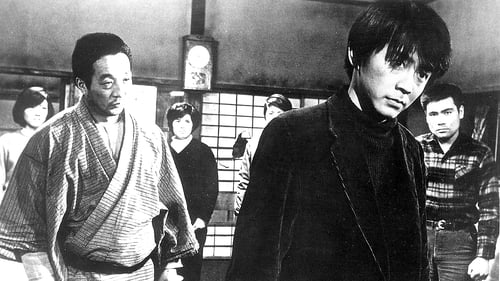
Cinematography
The second film tells about the life of matured brothers and sister Sato. Taro became a foreman. He saves every yen to fulfill his dream of building his own house with stone gates. Jiro continues to work in the transportation office, he dreams of getting married. Saburo faces a moral problem: in order to get a good position, he must answer the questions of the entrance test differently than his conscience tells him. At the exam, Saburo does not hide his views on life and is deprived of the promised position. Orie and Suekiti believe that he did wrong and betrayed his older brothers. But the anxiety in the Sato family is not limited to these events. Orie was being asked to marry a handsome, well-established young man, but she suddenly announced her decision to marry Tozaka, who was suffering from radiation sickness. Sato's peaceful home is falling apart...
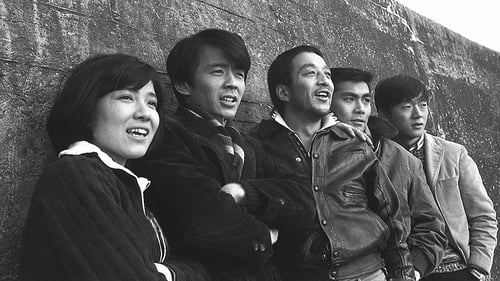
Cinematography
"Young People" is a story about the lives of four brothers and a sister, Sato. After the death of his parents, the older brother, Taro, who works in construction, decides to replace them. The second brother, Jiro, is a truck driver. The third, Saburo, is a student, dreams of a better future for the whole family are connected with him, with his career. Brothers and sisters are fighting to give him a higher education. And, finally, the youngest of the brothers, Suekichi, is also going to enter the university after graduation. The life of the Sato family is complicated. Taro is kind, but limited, not always able to find a common language with his brothers and sister Orie. The girl cannot stand the despotism of her brother, leaves her home and goes to work at the factory. With her departure, everything in the house goes upside down. Suekichi fails her university entrance exams, Orie is forced to return to her family.
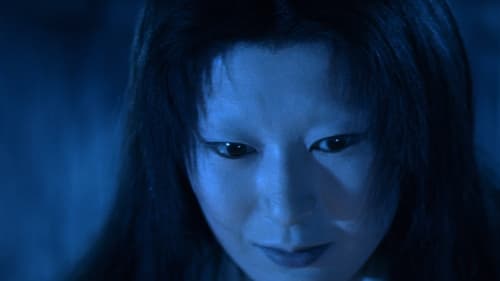
Cinematography
「黒髪」:妻を捨て、京都から遠い任地へと赴いた武士。そこで彼は、良い家柄の娘と結婚するが、彼女は冷酷な女で、男は今さら、別れた妻のことを思い出すのだった。やがて任期を終え、京都に戻った彼は最初の妻と再会するが…。「雪女」:きこりの巳之吉は、森へ薪を採りに入ったところで吹雪に遭い、山小屋に閉じ込められるはめに。その晩彼は、雪女の姿を目の当たりにし…。ほかに「耳無し抱一の話」「茶碗の中」の計4編。
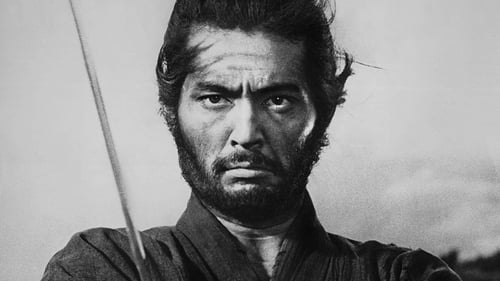
Director of Photography
彦根藩井伊家の上屋敷に津雲半四郎と名乗る浪人が現れ「切腹のためお庭拝借」と申し出た。生活に困窮した浪人が「切腹する」と言っては、庭や玄関を汚されたくない人々から金品を巻き上げることが流行っており、家老の斎藤勘解由は数ヶ月前にやってきた千々岩求女という浪人の話を始めた。家老が切腹の場を設けてやると言い出すと、求女は狼狽したあげく、竹光で腹を切った上に舌を噛んで絶命した、と。話を聞いた半四郎は、求女は自分の娘婿であることを告げた。
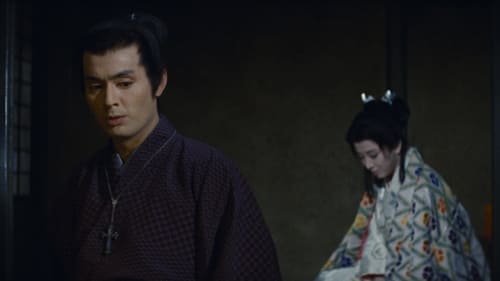
Director of Photography
The basic story in Love under the Crucifix is about Ogin, daughter of a tea master, who are both Christians in feudal Japan. Ogin falls in love with a feudal prince, also a Christian who is already married, and that creates problems. Further, when the Shogun bans Christianity, the situation worsens.

Director of Photography
The Weavers of Nishijin captures the process of traditional textile manufacture in Nishijin.
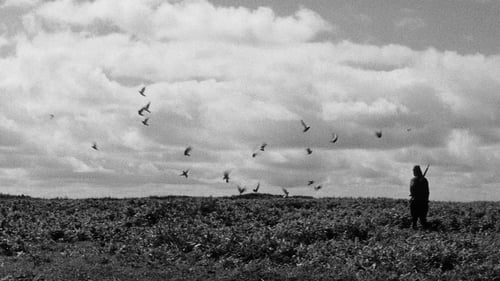
Director of Photography
After the Japanese defeat to the Russians, Kaji leads the last remaining men through Manchuria. Intent on returning to his dear wife and his old life, Kaji faces great odds in a variety of different harrowing circumstances as he and his fellow men sneak behind enemy lines.
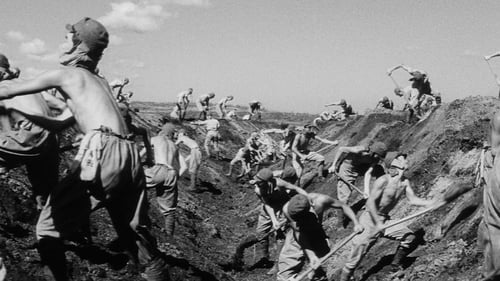
Director of Photography
Kaji is sent to the Japanese army labeled Red and is mistreated by the vets. Along his assignment, Kaji witnesses cruelties in the army and revolts against the abusive treatment against the recruit Obara. He also sees his friend Shinjô Ittôhei defecting to the Russian border, and he ends in the front to fight a lost battle against the Russian tanks division.

Director of Photography
Follows the life of Tsuru, the poor daughter of farmers in Shinshu, Japan.

Director of Photography
After handing in a report on the treatment of Chinese colonial labor, Kaji is offered the post of labor chief at a large mining operation in Manchuria, which also grants him exemption from military service. He accepts, and moves to Manchuria with his newly-wed wife Michiko, but when he tries to put his ideas of more humane treatment into practice, he finds himself at odds with scheming officials, cruel foremen, and the military police.

Director of Photography
A young, struggling couple are making every sacrifice so they will one day in the not-too-distant-future, have enough money to get married. As they have agreed on this procedure, it comes as a shock to the young woman to find out from her husband-to-be that he just loaned all the money they had saved to a friend. She is understandably miffed, and a big disagreement results. But after some time goes by, she discovers why the friend needed the money so badly, and the couple are back on solid footing again.

Director of Photography
Japanese drama film.
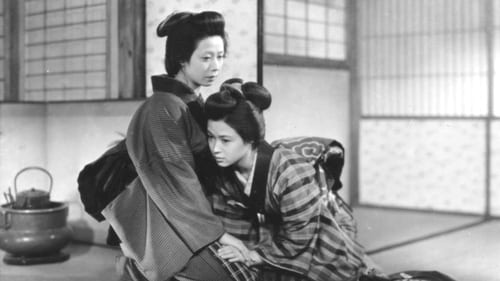
Director of Photography
Set in the 1860s, the final years of the Tokugawa Shogunate, The Fireflies focuses on Tose (Awashima Chikage), the mistress of the Teradaya, a small inn in the Kyoto suburb of Fushimi. She does not have an easy life. Her husband, Isuke (Ban Junzaburo), is a wastrel who fancies himself a kabuki singer and who is obsessed with cleanliness. Her mother-in-law, Sada (Miyoshi Eiko) dislikes her because of her humble origins (her family are farmers) and because she fears that she will inherit the inn instead of Sugi, her daughter. Sada's hopes for Sugi, however, are dashed when she runs off with a con artist and leaves her child behind for Tose to take care of. When Sada becomes seriously ill, it is Tose who nurses her. On her deathbed, Sada asks her daughter-in-law's forgiveness. Meanwhile Isuke spends most of his time with a mistress he has taken, forcing Tose to manage the inn by herself

Director of Photography
A scrap iron carrier arrived at Tokyo bay. The ship swarmed with the stevedores, the souvenir seller and the hookers. The crews of ship were oppressed by arrogant captain and his officers. The crews caused an uprising. A manager of stevedore ordered his employee leader to suppress an uprising...

Director of Photography
In a military family, an illegitimate son is brutalized by his brothers. A patriarchal, feudalistic household where dissent is forbidden is used to reveal the whole imperialist system that afflicted Japan between 1921 and 1946. Winner of the Crystal Globe at the Karlovy Vary Film Festival.
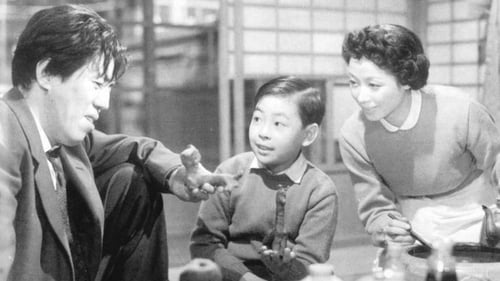
Director of Photography
In this Golden Globe winner for Best Foreign-Language Film, director Heinosuke Gosho -- a master chronicler of Japanese middle-class life -- presents the story of Kiyoshi Yoshida (Koji Shitara), who feels estranged from both parents after his father returns from war. How the boy adapts to life with the virtual stranger his father has become is the film's focus. Chikage Awashima, Yûnosuke Itô and Yoshiko Kuga also star.

Director of Photography
Based on Kakuko Mori's autobiography, about her life and retirement from acting due to her increasing blindness.

Director of Photography
Poor social conditions badly affect the relationship between a married couple, when the husband, who is desperately searching for work, fails to notice the terrible sacrifices made by his wife when she accepts a job at a local inn.

Director of Photography

Director of Photography
1950s Japanese drama.

Director of Photography

Director of Photography
Describes the oppressed life of the crab fishermen and their final revolt which is bloodily suppressed by the Royal Navy. (Set in the 1920's)
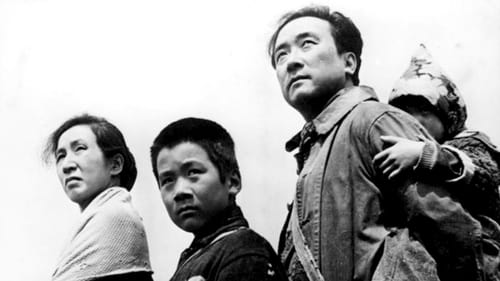
Director of Photography
About the struggles of day labourers to achieve dignity and a standard of living above the starvation level. Utilising the Zenshinza theatrical troupe.
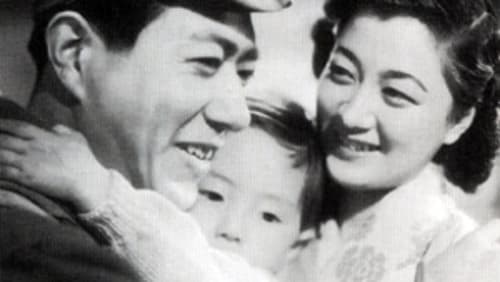
Director of Photography

Director of Photography
This film was made by the Japanese occupation authorities in the Philippines as a propaganda film to show the Philippine people the "benefits" of the Japanese invasion and takeover of their country.

Cinematography
A priest in Hokkaido adopts a blind orphan girl, and as she grows up he finds himself falling in love with her.

Cinematography
The final part of the trilogy. It is about a younger brother, Suekichi. He learned well the lessons that life taught his older brothers. Therefore, he does not think to study, but strives for material well-being alone. To make a career, he ruthlessly pushes his colleagues with his elbows. For him, the high ideals of trade union activists Jiro and Saburo are an example of old-fashioned thinking, naive behavior.























